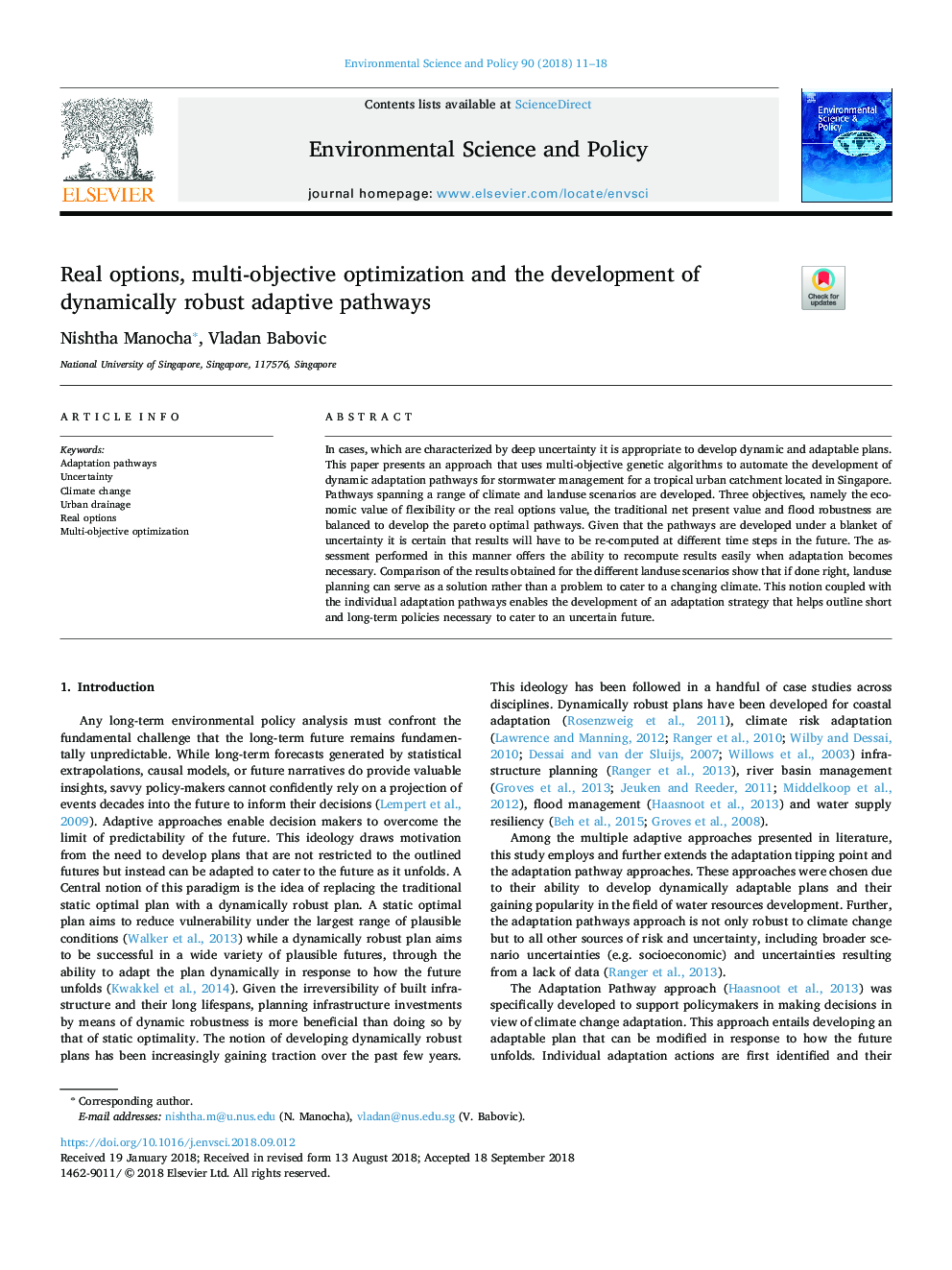| Article ID | Journal | Published Year | Pages | File Type |
|---|---|---|---|---|
| 11023244 | Environmental Science & Policy | 2018 | 8 Pages |
Abstract
In cases, which are characterized by deep uncertainty it is appropriate to develop dynamic and adaptable plans. This paper presents an approach that uses multi-objective genetic algorithms to automate the development of dynamic adaptation pathways for stormwater management for a tropical urban catchment located in Singapore. Pathways spanning a range of climate and landuse scenarios are developed. Three objectives, namely the economic value of flexibility or the real options value, the traditional net present value and flood robustness are balanced to develop the pareto optimal pathways. Given that the pathways are developed under a blanket of uncertainty it is certain that results will have to be re-computed at different time steps in the future. The assessment performed in this manner offers the ability to recompute results easily when adaptation becomes necessary. Comparison of the results obtained for the different landuse scenarios show that if done right, landuse planning can serve as a solution rather than a problem to cater to a changing climate. This notion coupled with the individual adaptation pathways enables the development of an adaptation strategy that helps outline short and long-term policies necessary to cater to an uncertain future.
Keywords
Related Topics
Physical Sciences and Engineering
Energy
Renewable Energy, Sustainability and the Environment
Authors
Nishtha Manocha, Vladan Babovic,
